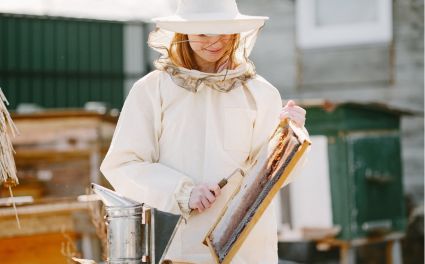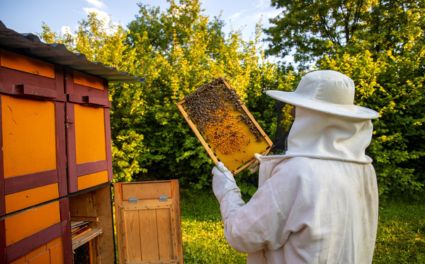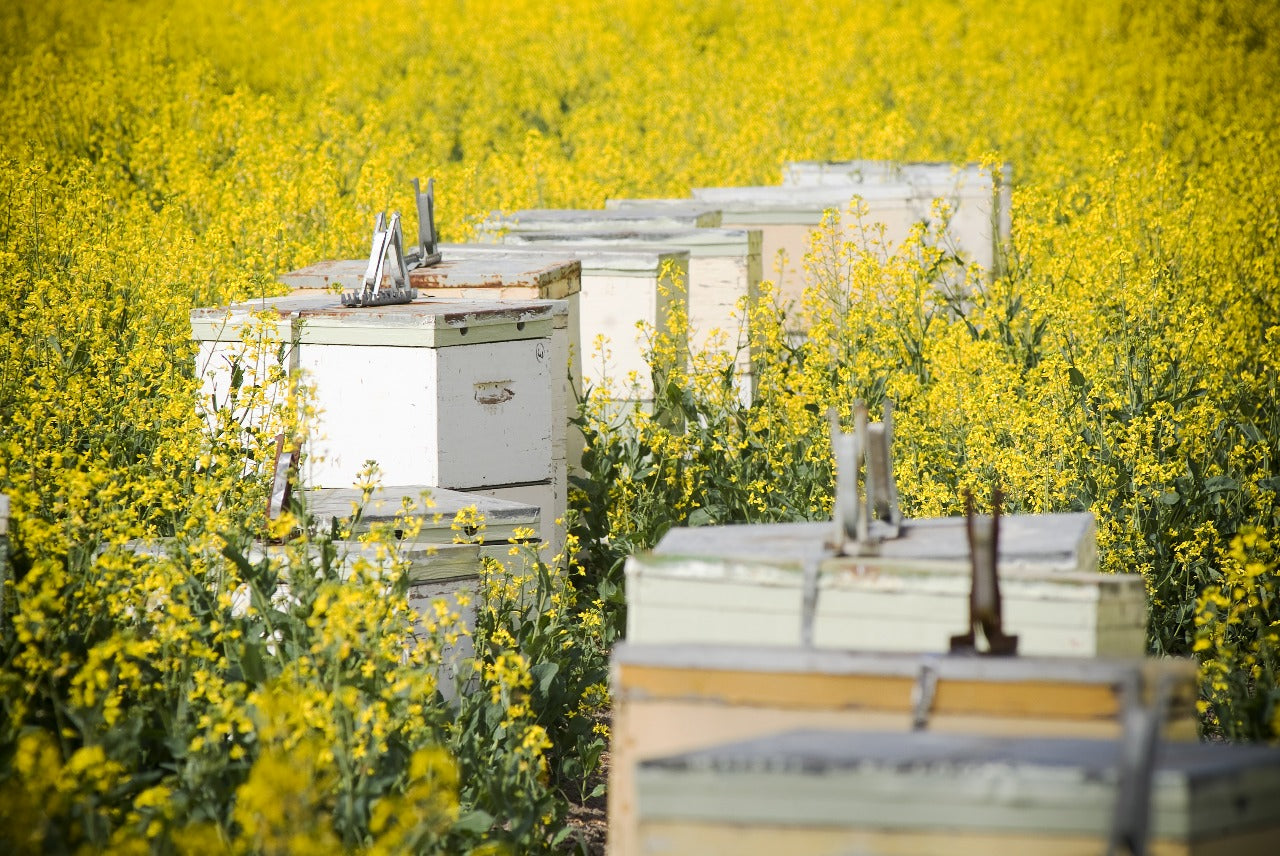Beekeeping is far more than a timeless hobby; it’s an industry that continues to grow in importance for agriculture and food supply worldwide. From producing honey to providing vital pollination services, bees contribute billions of dollars to global farming each year. For those who are curious about entering this world, one of the first questions often asked is: “Is beekeeping profitable?”
The short answer is: yes, it can be. But just like any other business, profitability depends on a mix of planning, investment, knowledge, and hard work. This guide takes you through the real costs, challenges, revenue opportunities, and proven strategies that can make beekeeping a rewarding and profitable venture.
Revenue Opportunities in Beekeeping
Unlike many small businesses, beekeeping offers several income streams. Here are the most common ways beekeepers earn money:
1. Honey Sales
Honey remains the primary revenue driver for most beekeepers. Depending on location and branding, honey can sell anywhere between $6–$20 per kilogram. Specialty types, like manuka honey or wildflower blends, often fetch premium prices. A strong hive can produce 30–60 pounds of honey annually, meaning even a small-scale beekeeper with 10 hives can generate hundreds of dollars in honey sales each season.
2. Beeswax & Other By-products
Beeswax is another highly valuable product, used in candles, cosmetics, wood polish, and even eco-friendly wraps. Beyond beeswax, hives produce other products like:
-
Pollen: Sold as a health supplement.
-
Royal Jelly: Used in skincare and natural medicine.
-
Propolis: Known for antibacterial properties, sold in tinctures or capsules.
These products are often in smaller quantities than honey, but because they target niche health and wellness markets, they usually command higher profit margins.
3. Pollination Services
Commercial farmers need bees for pollination. Beekeepers can rent out colonies to farmers during bloom seasons. In the U.S., for example, pollination services for crops like almonds, blueberries, and apples generate thousands of dollars per season. This option is particularly profitable for beekeepers managing larger operations with strong, healthy colonies.
4. Selling Bees & Nucleus Colonies (NUCs)
Experienced beekeepers often breed and sell NUCs (starter colonies) or mated queens to beginner beekeepers. A 5-frame NUC with a healthy Italian queen, for example, can sell for $150–$250. This revenue stream works especially well for those who want to support hobbyists or other small-scale operations.

Factors That Affect Beekeeping Profitability
While revenue opportunities are promising, profitability in beekeeping depends heavily on several external and internal factors:
A. Location & Climate
Not all regions are equal when it comes to bees. A location rich in flowering plants, orchards, and meadows provides abundant nectar. On the other hand, areas with poor forage or harsh climates may require supplemental feeding, which adds to expenses.
B. Beekeeping Skills & Experience
Beekeeping is a craft that improves with practice. Beginners often make mistakes, from over-harvesting honey to failing to recognize disease symptoms. Skilled beekeepers, however, know how to manage swarming, prevent infestations, and maximize honey production.
C. Colony Health & Management
A healthy colony means higher yields and profitability. However, bees are vulnerable to pests like Varroa mites and diseases like American foulbrood. Beekeepers must regularly inspect, treat, and monitor colonies to prevent devastating losses.
D. Market Demand
The demand for honey and bee products varies by location. Selling directly at local markets or online often brings higher returns than wholesale distribution. Additionally, branding honey as raw, organic, or chemical-free can significantly boost prices.
E. Equipment & Safety
Essential beekeeping gear includes hives, smokers, hive tools, and protective clothing such as beekeeping jackets, beekeeping suits, beekeeping gloves, and beekeeping veils.
Other important items include beekeeping trousers, beekeeping kids suits, and beekeeping ankle protection, all of which ensure comfort and safety while working with hives. High-quality protective wear from OZ Armour allows beekeepers to work confidently and efficiently without fear of stings.
Financial Breakdown: Startup Costs vs. Earnings
To better understand profitability, here’s a simplified breakdown for a beginner beekeeper with 5 hives:
Initial Startup Costs (approximate):
-
5 Hives & Frames: $1,200
-
Bees (NUCs or Packages): $800
-
Beekeeping Suits, Gloves, Veils: $300
-
Tools & Smokers: $150
-
Miscellaneous Equipment: $250
Total Initial Investment: ~$2,700
Annual Revenue Potential (5 hives):
-
Honey: 200–250 lbs × $10/lb = $2,000–$2,500
-
Beeswax & By-products: ~$300
-
Occasional NUC/Queen sales: ~$400
Estimated Annual Revenue: $2,700–$3,200
This means a break-even point within the first year or two, depending on honey yields and product sales. With 20–50 hives, earnings can scale significantly, especially if combined with pollination contracts.
Tips for Maximising Beekeeping Profitability
-
Diversify Your Products
Don’t rely solely on honey. Explore value-added products like flavored honey, beeswax candles, skincare balms, or even honey-infused beverages. -
Invest in Quality Equipment
A good beekeeping suit or hive tool pays for itself by reducing risks, saving time, and preventing costly mistakes. -
Use Smart Marketing
Build an online presence through social media, e-commerce, or farmer’s markets. Share your beekeeping journey—customers love authentic stories behind their food. -
Expand Gradually
Start small, master hive management, and then expand. Overextending too soon often leads to higher losses. -
Build Partnerships
Collaborate with local farmers, cafes, or health stores to stock your honey and hive products. This widens your customer base. -
Stay Educated
Join local beekeeping associations, attend workshops, and learn from experienced beekeepers. Beekeeping knowledge evolves, especially with changing climate and pest challenges.
Risks and Challenges to Consider
-
Pests & Diseases: Varroa mites, wax moths, and foulbrood are major threats.
-
Climate Change: Droughts, floods, and unusual weather patterns can reduce nectar flow.
-
Market Competition: Commercial honey producers may sell at lower prices.
-
Time Investment: Beekeeping requires consistent care and attention, especially during peak seasons.
Successful beekeepers acknowledge these challenges but use management strategies and proper equipment to minimize risks.

Final Thoughts
So, is beekeeping profitable? The answer is yes—with the right approach. Profitability depends on location, skills, colony health, and smart marketing. A beekeeper who diversifies their product range, invests in protective equipment, and carefully manages costs has every chance of building a thriving business.
At OZ Armour, we support beekeepers at every stage with protective suits, veils, gloves, trousers, kids’ suits, and ankle protection designed for maximum safety and comfort. By focusing on quality equipment and smart hive management, you can protect both your bees and your profits.
If you’re ready to explore more on this topic, you can always read more blogs about beekeeping to gain deeper insights and tips.
Whether you’re a beginner starting with a few hives or an experienced beekeeper looking to expand, beekeeping offers not just financial rewards but also the deep satisfaction of working with one of nature’s most fascinating creatures.













